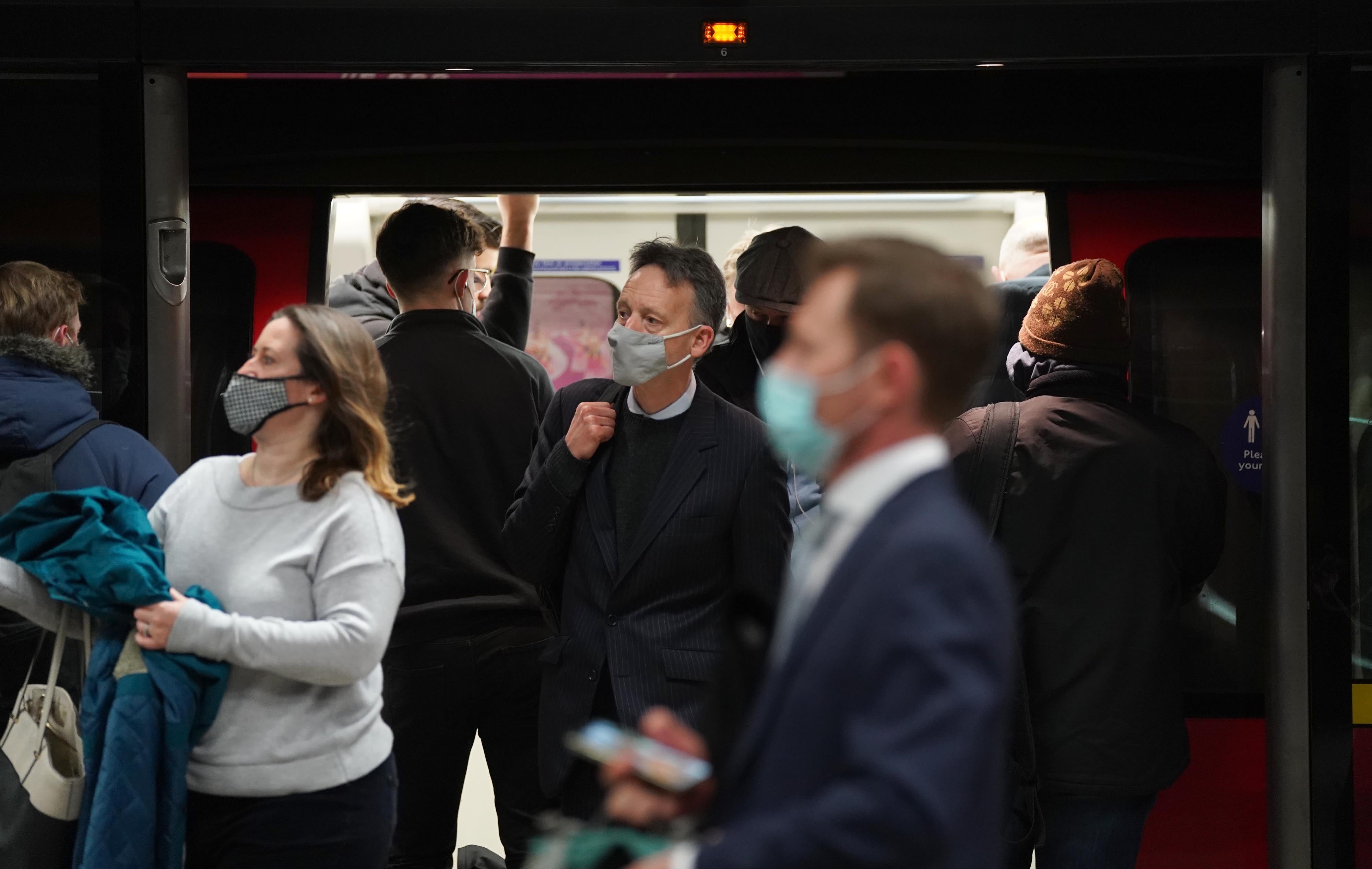Face masks now exempt for dancing on some forms of public transport
Confusion over extent of law meaning masks are legally required in museum gift shops, but not museums
Your support helps us to tell the story
From reproductive rights to climate change to Big Tech, The Independent is on the ground when the story is developing. Whether it's investigating the financials of Elon Musk's pro-Trump PAC or producing our latest documentary, 'The A Word', which shines a light on the American women fighting for reproductive rights, we know how important it is to parse out the facts from the messaging.
At such a critical moment in US history, we need reporters on the ground. Your donation allows us to keep sending journalists to speak to both sides of the story.
The Independent is trusted by Americans across the entire political spectrum. And unlike many other quality news outlets, we choose not to lock Americans out of our reporting and analysis with paywalls. We believe quality journalism should be available to everyone, paid for by those who can afford it.
Your support makes all the difference.Areas of public transport “used mainly for dancing” have been exempted from new Covid laws mandating face coverings in England.
Legislation that came into force on Tuesday makes it a criminal offence not to wear masks on trains, buses, the London Underground, ferries and aircraft.
But numerous exemptions have been written into the law, such as for eating and drinking, or medical reasons.
It states that face coverings are not legally required “where a person is in an area within a public transport vehicle which is being used wholly or mainly by people dancing”.
The Independent understands that the government intends the clause to cover party buses and boats, which are considered more akin to hospitality venues than public transport.
Cruise ships and school buses have also been excluded from the law, which came into force at 4am on Tuesday.
It requires people to wear a face covering when indoors on public transport, or in a “relevant place” indoors, which includes shops, enclosed shopping centres, banks, building societies, post offices and parts of transport hubs.
Hospitality venues, such as restaurants, pubs, cafes and areas “being used wholly or mainly by people eating or drinking” are excluded, as are GP practices, dental surgeries, opticians and other premises providing medical services.
Some types of venue, such as cinemas and hairdressers, were not specifically named in the legislation and have been clarified in separate government guidance amid questions over the extent of the law.
“Customers, visitors or staff may choose to wear face coverings in any other setting where face coverings are not legally required including places of worship, cinemas, public libraries or community premises,” it states.
“While not mandatory, you should continue to wear a face covering in indoor places, which are crowded and enclosed and where you may come into contact with people you do not normally meet.”
Sir Jonathan Jones QC, the former head of the government legal department, said the new face covering laws appeared to apply to shops within visitor attractions but not the attractions themselves.
“It seems that the regulations don’t apply to museums, (non-retail) art galleries, places of worship – but do apply to gift shops within such institutions,” he wrote on Twitter.

“I think the new regulations require a mask in public loos in a shopping centre or transport hub: but not if they’re within a restaurant/cafe/bar. And not in public loos in a town (unless perhaps there’s a charge, in which case maybe they count as a ‘shop’.”
Barrister Charles Holland said it was “baffling” for the government to create incomplete lists of places where the law applies.
“I'm afraid it looks like nearly two years into the pandemic and we still have unclear criminal laws with a gloss being placed by guidance,” he added.
The laws were created by statutory instrument, meaning they were not scrutinised by parliament before coming into effect.
The process was criticised by parliamentary committees and human rights groups earlier in the pandemic, amid warnings that differences between the law and government guidance were driving confusion.
An official review has found that almost 500 people have been wrongly prosecuted for breaching previous versions of the Health Protection Regulations, after failing to pay fines.
The fine for a first offence under the new mask laws is £200, reduced to £100 if paid within two weeks. The amount then doubles for each repeat offence, to £400, £800, £1,600, £3,200 and a maximum of £6,400 for six offences or more.
Police guidance says that “enforcement should always be a last resort”, and that officers must explain the law to people and encourage them to follow it voluntarily before fining them.




Join our commenting forum
Join thought-provoking conversations, follow other Independent readers and see their replies
Comments